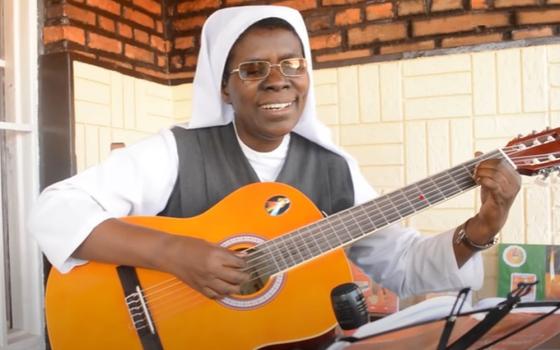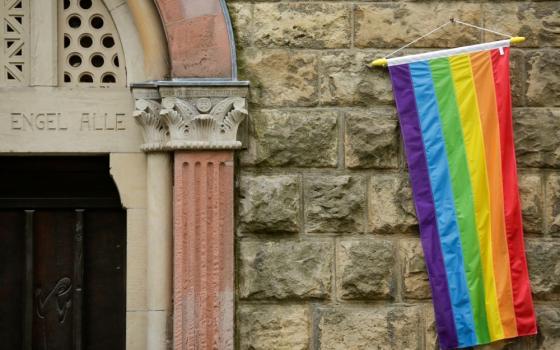
Talking as he leans over a hot cup of tea in the coffee shop of a Kansas City, Mo., hotel, Ken Hackett is cordial, modest and purpose-driven.
President of Catholic Relief Services since 1993, he’s viewed as an expert on global poverty and its ugly siblings, hunger and disease. His knowledge has been hard-earned; it comes, in part, from visiting the most forsaken spots on earth, where Catholic Relief Services is engaged.
He has seen far too many starving children to sleep well at night. His passion is to see the day the world finds the means — and most importantly the will — to eradicate hunger. He would like to see that day come before he shuts the door behind him at his job.
Hackett was in Kansas City to address a major international food aid conference. He was to speak before some 700 leading food aid professionals. They gather annually to take the pulse on their strategies to combat poverty and hunger worldwide. These experts had come from around the world. Hackett had just flown in, but he took the time to talk about his organization and its most recent challenges. Contributions are down 9 percent this year; portfolio investments are down nearly 30 percent; both are the result of the bad economy.
Catholic Relief Services employs 5,000 people globally. Hackett tells us the story of a recent trip to Haiti. There he met staffers who told him that as a result of a spike in food prices, they had to decide which children to send to school and which to keep at home. Hackett returned to Baltimore, where Catholic Relief Services is headquartered, and ordered a pay raise. He had no choice.
A day in Hackett’s life finds him talking with local villagers in Haiti, Zimbabwe or some other struggling nation, flying into war-torn Afghanistan or wearing a suit and testifying before Congress. He carries a heavy load. While in Kansas City, he was monitoring aid relief in L’Aquila, central Italy, following the earthquake there April 6. Catholic Relief Services has been collecting donations and working with Caritas Italiana. Both agencies are members of Caritas International, a network of 162 Catholic aid organizations devoted to poverty reduction.
Last month, after visiting impoverished Zimbabwe, Hackett wrote in an op-ed in The Baltimore Sun: “We must push hard to effect meaningful change in Zimbabwe. But we must do it in a way that preserves one of the most important commodities in that country, the one essential to its future: hope.”
Speaking of hope and having cautious optimism are very Catholic traits, and Hackett features both. Dipping a tea bag, he talks about a recent amazing confluence of forces that is making the possibility of eradication of world hunger a plausible idea for the first time some four decades. “I’m convinced we can solve global hunger in our lifetime,” he insists at one point. “Even Haiti, considered a basket case, can be brought back.” How? He quickly cites the use of new technologies, greater expertise, better cooperation and fresh willpower. He says the Obama administration is giving new energy to the idea and putting money on the table.
It seems Hackett’s own story has prepared him to possibly fulfill his dream. A native of West Roxbury, Mass., he graduated from Boston College in 1968, when he joined the Peace Corps and was assigned to serve in Ghana. In 1972 he first joined Catholic Relief Services, starting his career in Sierra Leone. He worked in Africa and Asia as well as in a variety of positions at headquarters before taking the top post in 1993.
Under his leadership, Catholic Relief Services went through some significant institutional transformations. His planning helped clarify the organization’s mission. Events forced even further reflection. The 1994 killing of more than 800,000 people in Rwanda led Catholic Relief Services to reevaluate how they implemented their relief and development programs, particularly in places with heightened ethnic conflict. After a reexamination, they incorporated what they call a “justice-centered focus” in all programming, using Catholic social teaching as a guide.
To make a contribution, go to Catholic Relief Services or send your check to: Catholic Relief Services, 228 W. Lexington St., Baltimore, MD 21201-3413.




